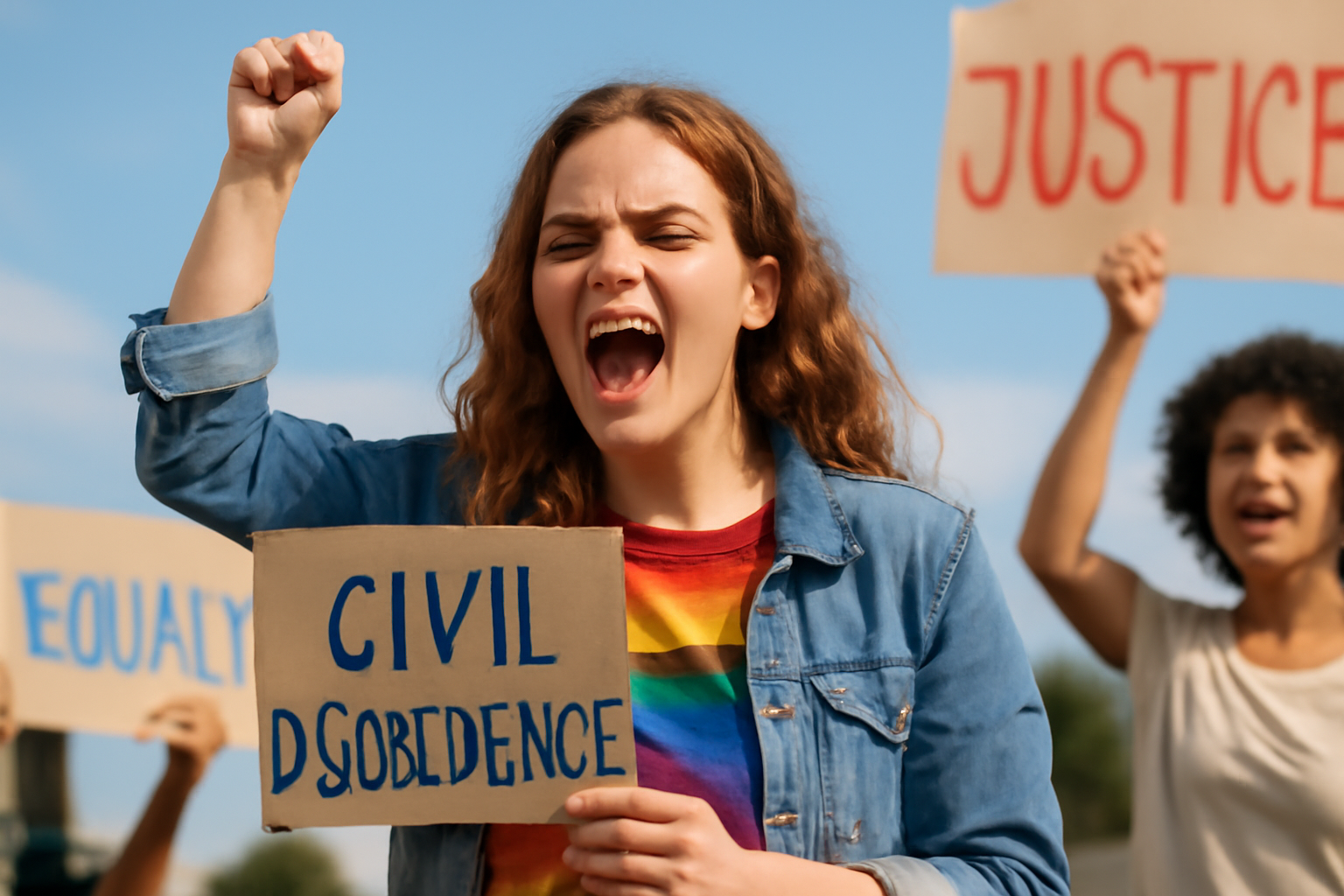
In the ever-shifting landscape of politics, many nations that pride themselves on being liberal democracies—such as France, Germany, and the United States—find themselves veering towards more conservative ideologies. This trend has caused deep concern among those who champion the principles of social justice, particularly following the re-election of figures like Donald Trump in the United States. The victory of such leaders is reflective of long-standing and deep-rooted societal issues, including patriarchal and nationalist ideologies that have been brought into the spotlight.
Understanding Social Movements
Social movements have been a focal point of study for sociologists, aiming to understand their lifecycle, which includes emergence, growth, and sometimes decline. Resource mobilization theory, emerging in the 1970s, suggests that social movements are rational responses to societal conditions that are deemed unacceptable. These movements can vary significantly in their goals and methods:
- Reform Movements: Aim for limited but significant changes within existing systems.
- Revolutionary Movements: Seek to completely overhaul current systems and replace them with entirely new ways of governance and living.
- Reactionary Movements: Attempt to halt or reverse progress achieved by other movements.
- Self-Help Movements: Focus on improving individual lives rather than broader societal change.
- Religious Movements: Aim to reinforce religious beliefs and convert others.
The Role of Non-Violent Civil Disobedience
Non-violent civil disobedience has been a powerful tool for enacting social change. As famously stated by Dr. Martin Luther King Jr., breaking unjust laws to highlight their injustice is a profound form of respect for the law. In democratic societies, where property rights often overshadow human rights, the First Amendment of the U.S. Constitution stands as a testament to the value of free speech and assembly.
Throughout history, students and activists have utilized non-violent resistance to advocate for change, from opposing the Vietnam War to fighting for LGBTQ+ rights. My personal journey as an activist began during my university years in the late 1960s, organizing rallies and student strikes. These actions symbolized our collective dissent against unjust government policies.
Research by Erica Chenoweth has demonstrated the effectiveness of non-violent campaigns over violent ones, showing that campaigns involving just 3.5% of the population can lead to significant change. This underscores the potential for non-violent methods to rally diverse groups across societal divides.
Building Coalitions Across Identities
In our pursuit of social change, coalition politics have become increasingly important. By forming alliances across identities, activists challenge power imbalances related to gender, race, and socioeconomic status. True progress is achieved by uniting marginalized groups with shared ideals and strategies, moving beyond individual identities to focus on common goals.
By addressing various aspects of oppression, activists are dismantling the "wheel" of systemic issues rather than just individual "spokes." This holistic approach is key to achieving lasting change and involves continuous self-education and collaboration with like-minded individuals.
Strategies for Action
Activists today have a multitude of strategies at their disposal. Here are some actionable steps:
- Support and volunteer with organizations dedicated to social justice, such as the ACLU, Southern Poverty Law Center, and LGBTQ+ advocacy groups.
- Participate in peaceful protests and marches, and seek training in non-violent civil disobedience.
- Engage in the political process by voting for progressive candidates and advocating for policy change.
- Work with community groups to create sanctuary spaces for undocumented immigrants.
- Stay informed and connected through book clubs, discussion groups, and newsletters.
Above all, self-care is crucial. Activism requires resilience, and taking time to rest and recharge is essential to avoid burnout. Connecting with loved ones, enjoying simple pleasures, and maintaining a healthy balance between activism and personal well-being can sustain the long-term fight for justice.
The words of figures such as Edmund Burke and Margaret Mead remind us of our power: "The only thing necessary for evil to triumph is for good people to do nothing," and "Never doubt that a small group of thoughtful, committed citizens can change the world." Together, through informed and compassionate action, we can create the change we wish to see in the world.
Related Posts
Trump Inaugurated as 47th President Amid Concerns for LGBTQ+ Community
Donald Trump has been sworn in as President once again, marking his second term as America's 47th leader. This significant event in U.S. politics promises profound impacts, especially concerning LGBTQ+ rights. Taking office: promises and challenges Amidst a harsh winter storm, Trump took his oath indoors at U.S. Capitol on January 20. Alongside him, Vice-President JD Vance also stepped up, both [...]
Daniel Craig's "Queer" Overlooked by BAFTA: A Surprising Omission
Daniel Craig's film, Queer, snubbed by BAFTAs despite rave reviews In a surprising twist, Daniel Craig's newest film, *Queer*, failed completely on BAFTA's nomination list this year. It's a head-scratcher, considering how critics have sung its praises and Craig delivered such a standout performance. Yet, not a single nod from BAFTA. Go figure. fans and critics baffled by BAFTA snub The exclusio [...]
Generations of LGBTQ+ Athletes: From Past Challenges to Modern Triumphs
In a captivating display that brought together voices across generations, two gay athletes from different times came together on a TV show, sharing their journeys and thoughts on LGBTQ+ representation in sports. This insightful program shed light on how inclusivity and acceptance in athletics have evolved over time. Connecting past and present: The stories behind Andrew Purchas and Davis Atkin L [...]